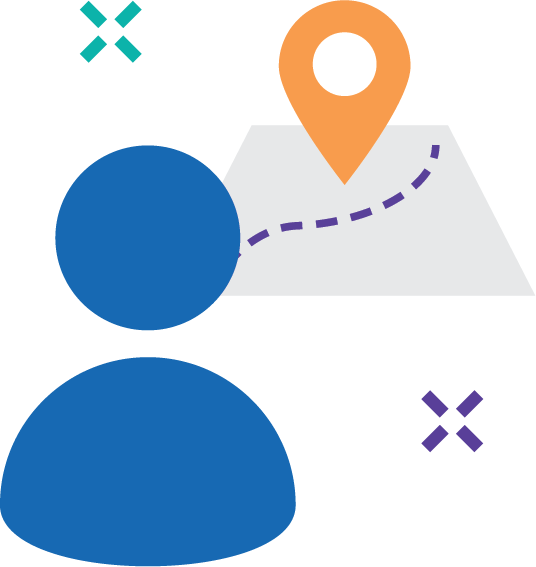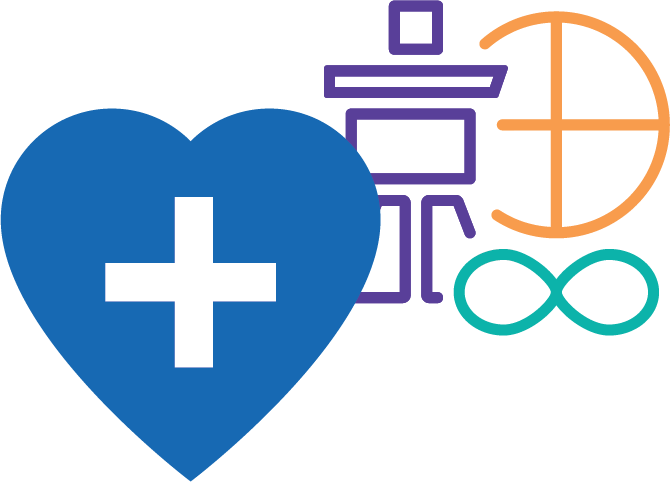Models of Care Toolkit
Patient navigation
 For patients living with cancer, and their families, the experience is often difficult and overwhelming.
For patients living with cancer, and their families, the experience is often difficult and overwhelming.
Supports like patient navigation are required to enhance continuity of care for individuals with cancer. This helps ensure that care is delivered in a connected and timely manner so that the medical and personal needs of the patient are met.
Optimizing the role of patient navigators can support person-centered care, increase the value of supportive-care models and better balance the workload of other cancer care team members. This can result in greater patient satisfaction, improved communication among care providers and better patient outcomes.
Patient navigators can help coordinate appointments and testing, and are positioned to identify the need for, and coordinate access to, psychological supports during and after treatment.
Culturally appropriate navigation
 Health systems across Canada have historically failed First Nations, Inuit and Métis when providing access to health care, delivering culturally appropriate care, and making care available closer to home.
Health systems across Canada have historically failed First Nations, Inuit and Métis when providing access to health care, delivering culturally appropriate care, and making care available closer to home.
Understanding the community experience and engaging communities in the design and implementation of patient navigation models can improve timely access to culturally appropriate care, help patients receive care closer to home and ultimately improve patient outcomes.
Indigenous navigation models also offer translatable lessons for health system leaders looking to enhance patient navigation services for all cancer patients.
How far do you need to travel to access care?
Learn how differences in access to health programs, the importance of care close to home and support for medical travel affect First Nations, Inuit and Métis to bring focus to the importance of navigational supports for communities.
Coaching support for patients post-treatment
The Ottawa Regional Cancer Foundation, in collaboration with healthcare partners, pairs patients with a health care “cancer coach” who provides support, education, practical guidance and navigation to help the patient meet their healthcare goals. Patients can choose in-person or virtual coaching sessions that focus on supporting patients’ physical, emotional, informational and spiritual care.
The Cape Breton Home Care Discharge Planning Program in Nova Scotia provides a home care discharge plan for First Nations clients when they leave the hospital.
The program includes a functional assessment that provides high-level information on a patient’s mobility and their capacity to function outside of the hospital setting. It also provides short-term service in the home until a community-based care coordinator can conduct a home assessment and develop a customized home care plan.
Initiated by First Nations in Unama’ki and the Cape Breton District Health Authority (now the Eastern Zone of Nova Scotia Health), the program improves the procedure for handling the discharge of people living on reserves. The program’s success is attributed to its community-led approach, seamless integration of the model into the existing system and conservative use of resources.
The pilot’s evaluation report provides a roadmap for other jurisdictions looking to collaborate with First Nations, Inuit and Métis communities in the creation of community-specific discharge protocols and/or cultural competency training.
Located at the Hotel Dieu Hospital site of the Kingston Health Sciences Centre, the Ininew Patient Services program facilitates culturally safe health care services for Cree patients and their families from northern Ontario communities.
The program supports patient admission and discharge planning and provides medical education and interpretation services to ensure patients can participate fully in their care.
The program also recognizes that coordinating travel can be a barrier to accessing care for patients living in remote communities. Ininew Patient Services has a charter flight operating regularly between Kingston and Weeneebayko to facilitate patient travel.
Established to help improve the cancer care experience for First Nations, Inuit and Métis, the Champlain Indigenous Cancer Program in Ottawa works closely with patients and family members to improve access to services in a respectful, culturally appropriate way.
The hospital’s Indigenous Cancer Program provides a holistic support for patients through its unique team-based approach that includes an Indigenous Clinical Lead, an Indigenous Nurse Navigator and an Indigenous Program Coordinator.
It supports patients and families by:
- Helping navigate the healthcare system and coordinate care and other services
- Liaising with members of the healthcare team to ensure continuity of care
- Facilitating access to language and translation services
- Providing direct patient and family member support during clinic visits and other appointments
- Preparing patients for their first appointment within the cancer program
The Indigenous Cancer Program also provides education and training to advance cultural competency within the hospital to ensure the delivery of culturally appropriate and safe care.
Eastern Health has an extensive patient navigation program with specialized navigation services in several areas including palliative care and cancer. With the ultimate objective of improving the patient experience, navigators help patients take a more active role in their care by removing the burden of care coordination from a patient’s shoulders.
Cancer patient navigators are specially trained oncology nurses who assist patients, families and caregivers in understanding and working through treatments, services and other challenges along the cancer journey. They also help monitor patient symptoms and assist with counseling and coordination of supportive care services through referrals.
Eastern Health’s Cancer Patient Navigation program provides navigation services in seven regions of the province to better support patients who have to travel out of the their community for treatment. With an understanding of local context, navigators can link patients with community health services, support groups and programs in their area, enhancing the continuity of care and provision of care closer to home.
Cancer patient navigators are specially trained to provide care that respects and values a patient’s cultural and spiritual backgrounds. The province also has Indigenous patient navigators who provide whole person care, incorporating traditional and spiritual aspects of supportive care into the cancer journeys of First Nations, Inuit and Métis patients.
- Aapro M, Bossi P, Dasari A, et al. Digital health for optimal supportive care in oncology: benefits, limits, and future perspectives. Support Care Cancer. 2020;28(10):4589-4612.
- Lewis RA, Neal RD, Hendry M, et al. Patients’ and healthcare professionals’ views of cancer follow-up: systematic review. Br J Gen Pract. 2009;59(564):e248-59.
